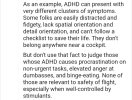I disagree but that’s what we are all here for. The 99 percent figure is not indicative of people who have trouble and continue. It’s a total. But out of people who are denied - that number is not 99 percent. Especially in the mental health category.You have a point, but....
People could have had their last class 3 exam 15+ years ago. Pilots who had to get a first-time class 3 may have now gone 5+ years or so. And nobody flying on Basic has to do regular follow-ups with an AME or a HIMS shrink like many of those with a class 3.
And there’s really no reason to think that the one-time class 3 exam is any better than the Basic Med exam anyway. Both use the same exam checklist.
Regarding “You've already eliminated the really problematic group from the numbers for either group,” I contend just the opposite. Remember that over 99% of applicants get a medical eventually. Basic Med collects that problematic group. If anything, Basic Med pilots as a group are more likely to have conditions that the FAA is worried about, since pilots (like me) go Basic to avoid unnecessary FAA tests and hassles.
Yet Basic Med pilots aren’t crashing any more often than class 3 pilots.
But it’s a big eliminator of many. Many people hit that initial HIMS roadblock for depression/ssri/adhd/bpd/etc and never move forward from there. All of those cases never make it to basic med qualification - ever.
But you also have to look at this in its entirety. Sport has a higher accident rate than the medical class. However - factors we don’t know - as in if the accident was related to health, training, lighter planes , less training - whatever. And many times - an accident whether sport, basic med or class 1/2/3 - you never know what the actual issue is or could have been. The decision making that happened frequently just isn’t known - whether it was panic, wrong singular focus etc - they never come out and say - because of someone inability to make a good decision because of ….. so that’s why they are never broken out because we just don’t know.
So let’s clean things up. Let’s say mosaic goes through - would that satisfy people ? Doubtful. People are always pushing for basic med to be class 3 privileges. So where is the line ? Are we saying basic med /IS/ class 3 or is or should they be different or differentiated. Or do we enable sport to have more privileges with Mosaic and get rid of basic med ? And finally - is the application and denial of a class 1,2,3 medical eliminate the applicant from basic med or sport as it is now ? Because people will still have issue with that and get caught up - but the FAA aeromedical has gone one record saying - if they know of a medically unsafe condition in an applicant - they will continue to take action and prevent that person from operating. So you can never win here.
Last edited:


 Not sure how that is relevant. Im sure that its "safer" to have a driver with a pacemaker on the road than in the air. Its all relative and if you're arguing that flying is safer than driving then Im not sure you're making a relevant point.
Not sure how that is relevant. Im sure that its "safer" to have a driver with a pacemaker on the road than in the air. Its all relative and if you're arguing that flying is safer than driving then Im not sure you're making a relevant point.